Welcome to our simple and proven guide on how to be a responsible traveller in 2025.
As people who live on the road 365 days of the year, we are lucky enough to encounter all kinds of different cultures and environments on a daily basis.
Through our personal experiences, we have become big advocates for sustainable tourism.
We believe that through the ways we travel, the regions we decide to visit, and the choices we make on how we spend our money and where can have a positive impact on communities and families that are not as fortunate as ourselves.
Another name for it is ‘responsible travel’.
What is responsible travel? Responsible travel is when a person travels in a way that takes into account social, cultural and environmental impacts, and make a conscious effort to leave a positive influence.
Travelling opens up the doors to a world that is both incredibly rewarding and desperately unfortunate.
While many of us back in the ‘real world’ are more concerned about which new shoes we are going to buy and whether it is time to upgrade our smartphone or not, there are tragic circumstances occurring every day that we are trained to ignore.
Table of Contents
- How to Be a Responsible Traveller in 10 Easy-to-Follow Steps
- 1) Volunteer Some of Your Time
- 2) Shop Locally
- 3) Think Before You Act with Wildlife Activities
- 4) Respect the Local Culture
- 5) Minimise Your Waste
- 6) Choose Sustainable Accommodation and Tour Operators
- 7) Lower Your Footprint
- 8) Look at the Bigger Picture When Bargaining
- 9) Don’t Give to Beggars
- 10) Educate Others to Be Responsible Travellers
How to Be a Responsible Traveller in 10 Easy-to-Follow Steps
But fear not, because there are plenty of ways that travellers can help make a big difference to the people of the world by simply being more mindful and educated about the decisions we make when overseas.
Here are 10 ways to help you become a responsible traveller.
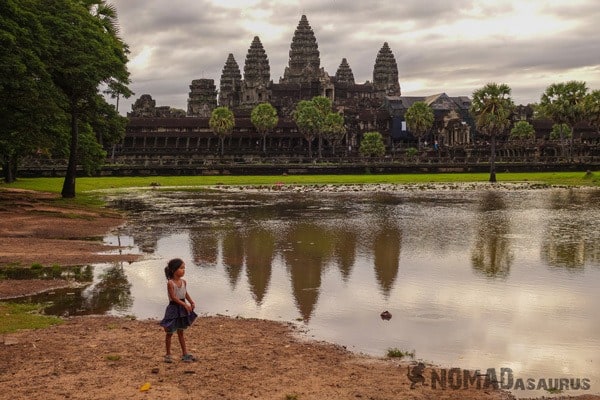
1) Volunteer Some of Your Time
Whether you are travelling for two weeks or two years, volunteering a portion of your time to worthwhile causes and with reputable organisations can make a world of difference.
If you have a skill that may be useful in a developing nation, such as medical care experience, an engineering background or have worked in social care, there are a whole multitude of avenues you can pursue to help put your expertise to good use.
But even if you are not highly qualified, you can still find beneficial ways to volunteer.
It may be possible to spend a few days teaching English in rural schools, or you can check out different animal conservation projects that are active in the places you are visiting.
Another great idea is to contact a local NGO and ask if they need any supplies brought over.
For some more ideas, check out Pack For A Purpose and Grassroots Volunteering.
A word of warning though – Don’t get caught up with the idea of ‘Voluntourism’ for the wrong reasons. Please do your research before committing to volunteering with an organisation, and think logically – Is spending a day at an orphanage really beneficial to those children? If you have no construction experience, are you suitably qualified to build a hospital in Tanzania?
And by you volunteering, are you actually taking a job away from a local who could perform the same task? Instead of paying a high cost to ‘volunteer’ with a NGO, don’t be afraid to admit that perhaps it is better to just donate that money and let the experts handle the task.

2) Shop Locally
When it comes to eating, sleeping and buying souvenirs, choosing where you spend your money can have a massive impact on the community.
By having dinner at a hole-in-the-wall restaurant, staying in a family-run guest house or purchasing a trinket from a street vendor, you are helping to inject money directly into the local economy.
Besides creating a more authentic travel experience for yourself, you are also helping someone create a better life for themselves.
Buying from a multinational corporation will only see most of your tourist dollars go straight into the pockets of shareholders and business directors.
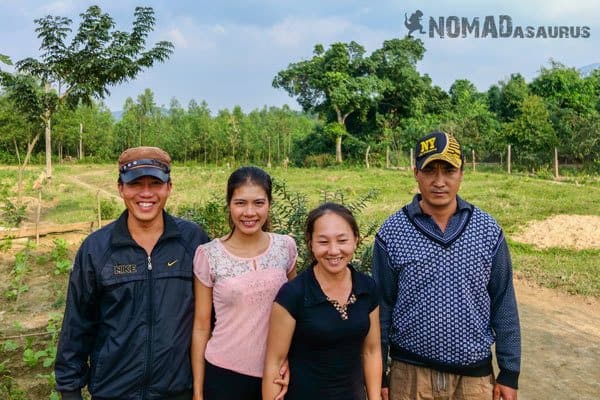
3) Think Before You Act with Wildlife Activities
When making plans for an overseas vacation, a lot of people have exotic dreams of riding elephants, swimming with dolphins or having their photos taken with tigers, but these irresponsible activities often do more harm than good.
Wildlife tourism is big business, and most of these operators think about the profits before the well-being of the animals.
Remember that for one hour of entertainment for yourself, you could be contributing to a lifetime of distress for the animal.
If you are really interested in visiting a place that houses and protects animals, make sure you contact one that is a registered NGO, and is transparent about their business dealings.
A reputable organisation will have no problems in sending you all the information you would like.
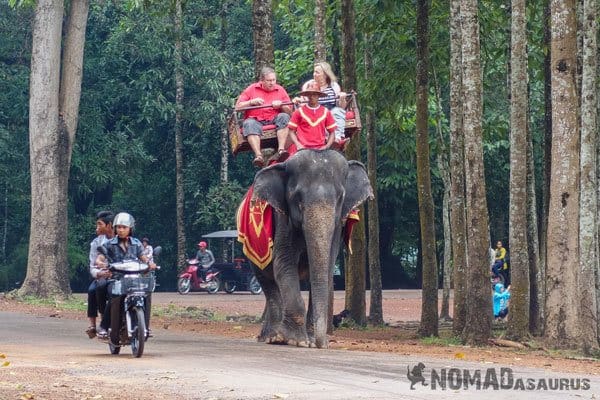
4) Respect the Local Culture
One of the greatest rewards we can have when we travel is learning about different cultures and religions.
The world and its people are diverse and fascinating, and it is an astonishing feeling being privileged enough to experience it.
We must keep in mind how important it is to show respect to those local customs and traditions when we travel.
Many countries are more conservative with their dress sense, and wearing short shorts or singlets may be considered to be inappropriate.
Take the time to learn a little bit of the local language (even if it is just ‘hello’ and ‘thank you’), just like you would expect visitors to your home country to do.
Study what the customs are of where you are travelling to to ensure you don’t inadvertently offend anyone.

5) Minimise Your Waste
Waste management can be a major issue in most developing countries, and we as travellers often unknowingly contribute to this problem.
The education levels when it comes to recycling and minimising waste in other countries may not be the same as what we receive back home, so it is important to take your own steps to help out the environment.
Say no to plastic bags from shops and instead put your items in a backpack or a cloth bag.
Eat and drink in the cafe rather than going for take away (or carry a KeepCup with you, which we always do).
Carry a reusable water bottle with you and fill up from large water jugs that can be found in most hotels and restaurants.
Or do what we do, and carry a water sterilisation tool on your travels. We personally recommend SteriPEN.
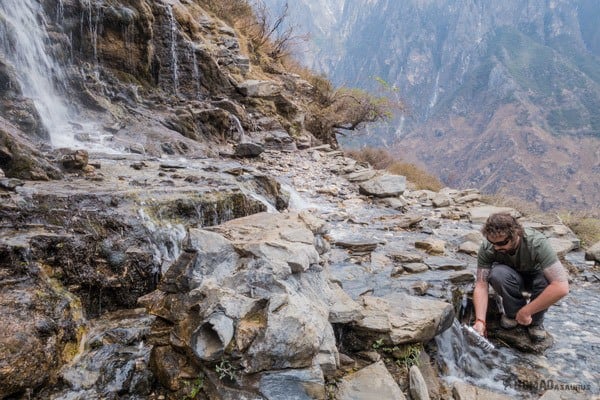
6) Choose Sustainable Accommodation and Tour Operators
There are thousands of options available to you when it comes to finding a place to rest your head, or choosing an operator to take you out on that unforgettable holiday experience.
It is possible to find businesses that actively work with local communities or have practices that help protect the environment, and these kinds of establishments should be rewarded for their efforts.
For a good guide, check out our detailed blog post on choosing eco-friendly and sustainable accommodation.
They may choose to only employ local guides or workers from nearby villages, or provide extra training to help their staff improve their skills.
Some places even donate part of their profits to charitable enterprises, or pay their local staff above-average wages, without you having to do any extra work!
It may take a little bit more research to find these sustainable companies, but the benefits are worth the effort.
For a great example of this ideal business model, check out the Mad Monkey Hostels in Cambodia.

7) Lower Your Footprint
There are a lot of great ways to lower your environmental impact when you are travelling.
Instead of always taking taxis to get you from A to B, see if a local bus can get you to where you need to go.
If the distance you need to go isn’t too far, walk instead of jumping on public transport for one or two stops.
If you really want a great way to explore an area, rent a bicycle! Not only is it good for the environment, but it is good for your travelling budget and your health too!
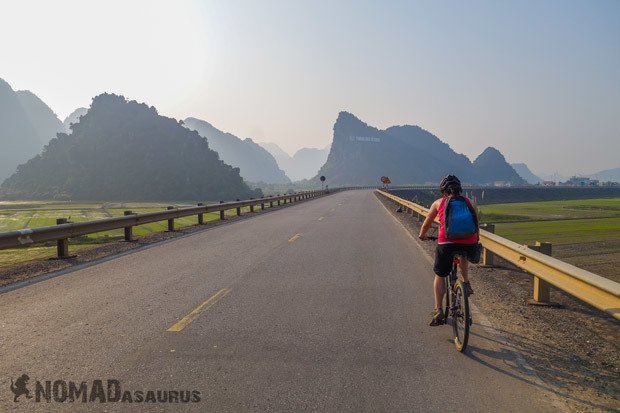
8) Look at the Bigger Picture When Bargaining
In regions like Latin America and South East Asia, bargaining for products is a part of the culture. It can almost be like a game! But please think about the bigger picture when bartering for that souvenir.
Before you start haggling over $1, think about how far that extra bit of cash could go for the person you are dealing with.
Look at the bigger picture! If you don’t think twice about staying in an expensive hotel and drinking overpriced cocktails by the pool, don’t then try and bully a local out of a couple of bucks.

9) Don’t Give to Beggars
Now this one really is a hard one, as most of us feel completely heartbroken when we see people (especially children) begging in the streets.
But it is important to remember that begging only encourages local people to continue asking tourists for money.
As a result, there are many destinations that end up with people begging who are pretending to be worse off than they are in order to extort money off of foreigners.
When it comes to children who ask for money, in places like Cambodia parents often take them out of school to beg on streets, and in the worst cases they may be part of a larger network run by unscrupulous characters who keep the money for themselves.
Obviously use your discretion with this one, but if you really want to help out, perhaps buy the person some food or water instead.
Also try and seek out local organisations who work with underprivileged people in the area and ask if they require any assistance.
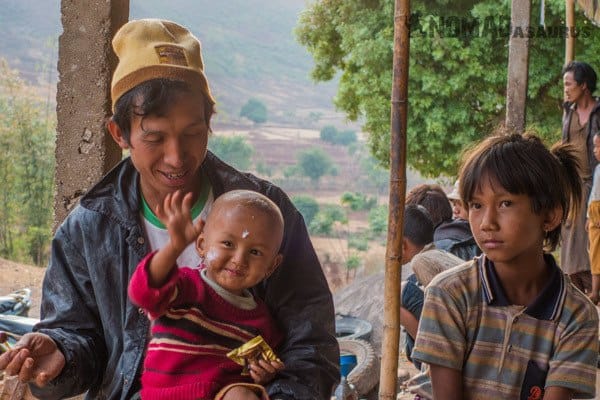
10) Educate Others to Be Responsible Travellers
Being a responsible traveller might come naturally to some, but others may just not be aware of the implications their actions can have when they are abroad.
If you see someone unintentionally doing something that is detrimental to the environment or to the local people and culture, perhaps mention something in a friendly way.
Start discussions about responsible travel with people in your hostel, hotel or who you are on tour with. It is only through education that we can help spread the word about sustainable tourism.
Before you head out on your gap year learn how to be an ethical and sustainable traveller.
If you have any other questions, thoughts or ideas, or are a business looking to implement sustainable practices, please feel free to get in contact with us.
Remember, our actions can have a big impact on the world while we travel. Make sure it is a positive one.
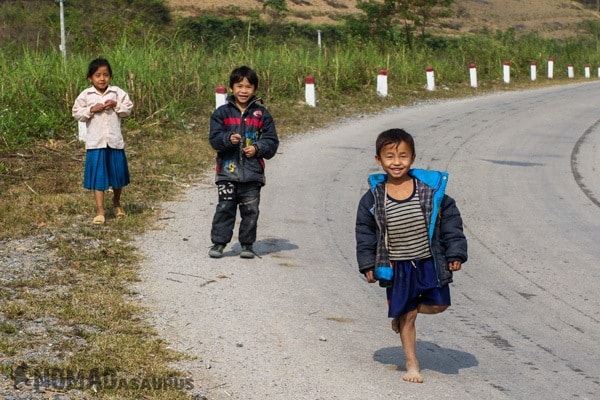

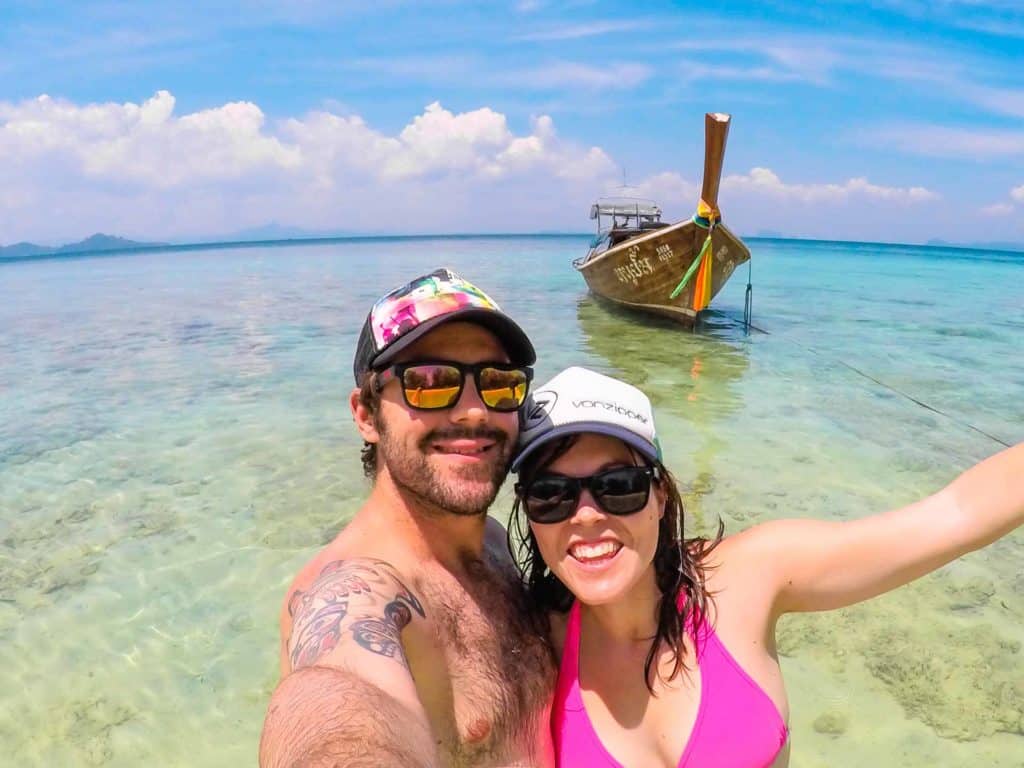
61 thoughts on “10 Important Ways to be a RESPONSIBLE TRAVELLER in 2025”
As a responsible traveller, it’s important to ensure that we consider the needs of the local community and environment in our actions. This includes being mindful of our impact on the places we visit, as well as the comfort and safety of our fellow travellers.
One aspect of responsible travel that is often overlooked is the importance of providing appropriate accommodation for young children. If you’re travelling with babies or kids, it’s essential to consider their needs and ensure that they have a comfortable and safe place to sleep.
One solution that can help with this is to consider travel cots for babies and kids. These lightweight and portable cots are designed specifically for travel and can make a huge difference in ensuring that your little ones get a good night’s sleep while on the road. By investing in a travel cot, you can rest easy knowing that your child is comfortable and safe, and you’re doing your part to be a responsible traveler.
Hey, I really enjoyed this post and all the good insights. I never really thought about volunteering when on vacation, but after you talked about it it honestly makes sense. Not only are you giving back to that community it seems like a really good way to meet the locals and see places you otherwise wouldn’t.
Stay somewhere sustainable, shop locally and respect the local culture – yes!
We share your belief in sustainable travel, and are always delighted to see visitors making informed choices about their holidays. It may be easier to sign up for a tour package, but the implications of doing so are detrimental not only to the places you visit, but also to yourself! In our experience, here in Thailand, visitors have a much more enjoyable and enriching experience when they choose to plan their own holiday and interact with the locals.
When you buy a package holiday, you put yourself in the box, gift-wrapped for the tour operator!
Agree. Well said. 🙂
Great Post! Thanks for sharing this information.
Thank you so much. 🙂
Thank you for reading. 🙂
Responsible Tourism its a better way of travelling which will always give the visitor a great experience in interacting with community while supporting the respective community .
Agree. Well said Vadastus Willy 🙂
11. Eat little or no meat and avoid animal products in general.
12. Don’t fly.
Definitely you are right on both of them. Cutting your meat intake is a big one and no flying. Unfortunately countries are land locked like Australia and New Zealand or the small islands and the only way to away is by flying. Cruise ships are even worse than flying. These countries aren’t as lucky like Europe or the Americas. Definitely flying direct is the best way and flying with airlines that are fuel efficient. Thanks for your comment.
To be a responsible traveler, you need to keep one thing in mind that do give respect to every type of customs and cultures. Do follow what they say.
Agree. Well said Swati 🙂
I frequently clean up beach trash, and recycle items in countries where I can find recycling bins. I just found a website that lists beach cleanup days and plan to start joining them – cleanthebeach-Bootcamp.com.
I frequently pick up trash on beaches, and recycle items in countries where I can find recycling bins. In Sanur, Indonesia I joined a group of locals removing trash floating in the ocean.
What a great article. Travelling would be a much better experience if one took the time to read this article. Responsible travel is not only ECO friendly, but also a very authentic and natural experience. Being a Sri Lankan, I love the fact that there are many Responsible travel agencies scattered around the country. I am a person who is very environmentally conscious, and I hope that everyone else would be a responsible traveler too.
Thank you for your comment Desira. We are seeing more responsible travel agents popping up and we are loving it. Everyone should travel responsibly and respect one another’s country, culture and their people. Happy travels
Great article – the most thorough one I’ve seen on this topic! I carry a Sawyer Mini Filter to use for filtering water which cost only $15. I suggest travelers donate to good causes when in poorer countries. I will not give money to beggars, but I donated small amounts when I saw music performed by land mine victims in Cambodia who had a sign explaining they used to beg but now are trying to live lives with dignity. I also support projects such as massage training programs for locals who are blind or ex-prisoners, even if they charge a couple of bucks more than others. I suggest readers check out tour companies thoroughly to make sure they are based in the local country and support locals. I was ripped off for over $1800 by a company that I did not realize was based in the US when I decided not to go on a volunteer tour which was misrepresented on the website. If that company had been based in Nepal, the Ministry of Tourism would have helped me get my money back.
Hi Kendra, Sounds like you are a person with a huge heart. We need more like you out there. Great tip about the water filter. We agree about donating to charities within a developing countries. Sorry you had a terrible experience with volunteering. It is sad some companies are not in it for the right reasons. You have many great tips there and thank you for sharing. 🙂
Hey, guys!
I’m a newbie in the world of blogging, so I only came across this post now. I love it! It’s highly educational and raises a topic that is often ignored. I’m currently in Namibia, passed Tanzania, Zambia and Botswana by land to get here and many of the things you mention crossed my mind.
I wish you guys a wonderful 2017 full of inspiration!
Thank you so much. Welcome. Sounds like you are having a wonderful trip. We have not explored Africa yet. We are glad you enjoyed our article. Happy travels Irina 🙂
This is such a great article – you make some very good points. Being a truly responsible traveler involves doing a lot of research when planning your trip, especially when booking accommodation and wildlife tours. Rainforest Alliance have a great directory of certified eco-hotels and tour agencies, but I still like to ask a few questions before making a decision. I try to find out if the company is involved in community-based projects or if they support conservation projects in the region. Also, I want to make sure that a percentage of their profits is invested in the community or the environment.
Thanks for your comment Jessica. You are so right in asking questions. Being 100% sure tours are legit and eco friendly before committing is important to you, the community and environment. Thanks for the information on the site too. 🙂
This was an amazing read and I agree with every single point you mentioned.
Personally I love walking everywhere when I’m travelling and in worse case I try to get a bus, there is something great about using the public transportation on our travels 😀
Walking is amazing. You discover so much that you would not see in a bus or taxi and it’s good for you. Indeed you have many different experience on public transport. That is our next best way to get around. Happy travels Fabio.
Great post! I really strongly agree with what you said about ‘think twice when haggling’ – I’ve never understood how some people will happily spend $10 on an imported beer yet not buy a market good unless it is ridiculously cheap! These are words that every traveller should live by.
We know. Ridiculous isn’t it. We hardly haggle at all now. If it is a good price for them and us then it is settled. 🙂
This is such a great article sharing such a responsible take on how we as travellers should conduct ourselves. I personally have always been in favour of showing a little class when bargaining. Too often ive seen travellers bargaining to the bitter end over a dollar that they’d never miss back home.
Also strongly believe we need to be very careful choosing activities involving animals. We have a lot of influence over whether they continue to suffer or eventually find freedom as the tourist demand dries up.
Thank you so much for the great post!
Thanks very much! Glad you liked our article 🙂
Couldn’t agree more. At some point or the other I felt all these while traveling. Unfortunately most of the people are not aware of the implication of their actions. When I was younger I felt delighted at the idea of swimming with the dolphins, riding on an elephant and stuff. But, now I understand these shouldn’t be encouraged. Begging network is a huge problem in India. I wish everybody could think like us. Great post by the way!
The older you get and the more you travel the wiser you are. Safe travels Tania. Thank you. 🙂
Great post! We’re trying to be responsible travellers and I’m glad to see we were already aware of a large part of your tips and making an effort to comply. During our past 3 months of travel in Southeast Asia we noticed there are still a lot of people ignoring this. We saw elephant riding in Angkor, people giving money to begging children in Cambodia and people wearing “non-decent” clothes in temples everywhere. I pinned this post and hope it helps spreading the word!
Thanks so much for taking the time to read this article Birthe, and we are really stoked that you have already implemented most of these practices yourself! If more people that take responsible travel seriously, the better effect we will have on the places we visit. And thanks for helping to spread the word. You are awesome! Happy travels 🙂
Hi,
I just found your website via Pinterest, while I was looking pins related to Resposible tourism, and I love it.
I totally agree with you and I find it awesome that you started this blog and mission it’s important that people start to pay attention. Plus, I really love the writing 🙂
Looking forward to reading more 🙂
Thanks so much Jessie! Really appreciate the kind words. Happy travels 🙂
These are great tips and advice.It is important to pay respect to the local culture and people there when we travel.And thanks for reminding the fact of shop locally.Actually I didn’t have a concern on this.Sure,it is a great tip for me.
Glad you enjoyed the article, Amila. Shopping locally is a great way to help out small communities when we travel. Thanks for reading 🙂
This is such a great list. I really wish I had brought more water sterilization tablets with me when I travelled- I felt terrible using so many bottles but wasn’t able to find pure water to refill mine with. A lot of your suggestions are so simple but really do make a difference.
Thank you Rebekah. We love our metal water bottles. We only use them now. We are glad you took something away from our article. 🙂
#8 though- be careful about this. Oftentimes, locals increase rates for foreigners, but then it raises the prices for locals. This is a huge problem in Latin America with things like rent and food. Otherwise, great article!
Ah yes, that is a big problem. We’ve seen locals been pushed out of many places due to the booming tourist industry. If they don’t capitalise on it early they end up missing out on a whole lot more than just a bit of extra business. Thanks for reading Gillian.
Great set of tips here guys!! It’s such a shame going to another country and seeing how some tourists act. We have witnessed people talking down to locals and yelling at them, it’s disgusting. Really wish they would make handouts with tips for some people before going to a new country.
Exactly! If only more travellers took the time to learn a bit of respect when leaving their home country. So many just become ignorant the minute they go on vacation. Thanks for reading guys 🙂
It still surprises me that even my close family and friends (who I lecture about sustainable travel on a regular basis 🙂 ) don’t fully understand the implications of their travel. And it makes sense…people want to relax on vacation and not think about any bigger issues. I just wish someone would come out with a popular documentary (something along the lines of Blackfish) that really raises awareness. Have you heard of any that I can share? Just imagine what something like that can do for change!
We understand. Same with us. It is hard sometimes for others to understand. We don’t know of any documentaries. We don’t watch a lot of TV, but if we here of any we will let you know. Take care.
Such a great post and definitely something everyone should read before travelling.
Like you, we are huge advocates of responsible travel and we try our best to limit our impact on the communities that we visit – if we do make an impact, we want it to be a positive one.
While travelling, some of our most amazing experiences have come from making more responsible travel choices – we have learnt so much about local traditions and cultures from staying with local families and have learnt different traditional crafts from taking lessons with local artisans. It is a great feeling to know that the money we have spent has gone directly into the pockets of the local people and community initiatives, rather than in the pockets of bigger travel companies, many of whom has less ethical and responsible policies.
Responsible travel doesn’t have to be difficult or expensive. It is simply about making sure you are well informed and then making the right choices for the places you are visiting.
Wonderfully put, Karianne, and we’re stoked that you put as much emphasis into travelling responsibly as we do. If only more people would have the same mindset, the positive impacts would last forever! Thanks for reading.
Hello from Become A Traveller! Being a responsive traveller is not an easy task, I feel that I need to improve myself in a few points as well. I like your blog very much and therefore nominated you for Liebster Award. Please check it out, I would be delighted to read your answers! Let’s stay connected!
PS: Finally managed to list you on my travel blog directory as well 😉
Thanks so much for the nomination Aleksei! You rock 😀
Great advice, thank-you. I try and stick loosely by these rules myself too- mainly being careful to inject my limited money into the community in the right way and reducing my carbon footprint by trying not to fly too much. I think you make an important note about volotourism too… there are a lot of dodgy schemes out there which contribute very little to the local people themselves.
There is a lot to think about with responsible travel, but it is important to make these changes when we explore the world. Thanks for reading, Katie.
Great post guys! I really like all of your points, and in particular about not giving to beggars and looking at th ebigger picture before bargaining — two big ways to make a noticeable footprint in responsible travel.
It is a difficult decision not to give to beggars (we still do sometimes though), but it is an important thing to think about.
Great read! I especially love the point about animal welfare. So many people ask me about my time in Thailand and want to know if I rode and elephant, or I hear people who are about to travel to SE Asia talk about riding an elephant or going to shows. Every time I hear this I explain the awful training practices and how abused the animals are hopefully deterring them from supporting such a terrible industry.
I also like that you pointed out how certain volunteer opportunities can do more harm than good. I volunteer with programs that focus on animal and environmental conservation, but I try to make sure that the money I’m paying to do so is going back into conservation efforts and not just lining someones pockets. It’s sad that there are people out there who want to prey on the good intentions of others, but the more we educate ourselves, the better choices we can make.
Thank you for spreading the word for responsible tourism!
Cheers!!!
Thanks so much for reading, Sadie. Hopefully more people begin to think about the consequences of their actions.
Great article and we love reading that SteriPEN is part of your plan to help reduce plastic pollution!
Thanks very much, Julie! Always happy to spread the word.
Hi Jazza and Lesh!
Amazing post, I have been meaning to write something similar in order to raise awareness on the effects of tourism – be with a two week holidays or a one year off!
Hope you don’t mind if I share it in our facebook page ?
Thank you!*
Feel free to share our post, and definitely write one of your own. The more the word on responsible travel spreads, the more informed people will be 🙂
Amazing post, Jazza & Lesh!
As you wrote on Facebook, one that everyone should have read before hitting the road.
I couldn’t agree more, and find it really good that you address such challenging subjects as the dangers of giving to beggars (which I almost never do, and don’t be mistaken, it is indeed heartbreaking), and the dangers of “Voluntourism” (but the help that real volunteering can be), which has turned into a major industry.
Thanks!
Cheers, Gilles
Thanks for reading Gilles! Glad you find the topic as important as we do. Indeed not giving to beggars is tough, and voluntourism can do more harm than good. As long as people think before their actions, responsible travel is still very easy to attain 🙂